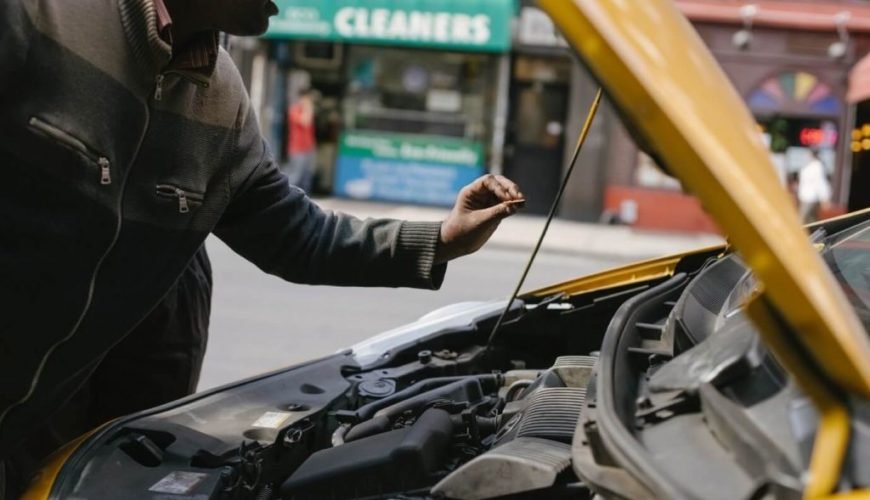Knowing how to maintain a vehicle properly is important when you want to preserve its overall appearance. Plus, maintaining the vehicle will assist you in keeping the drivers and their passengers safe. If you are unaware of what to do, we have listed a few things to do for your car to run efficiently. Check out here for diesel generator releted maintenance.
-
Check Your Tires
Checking your tires can make a big difference in your car’s fuel economy. Plus, having low tire pressure can wear your tires faster. So if you want to save yourself at the pump and prevent yourself from buying new tires, then you should ensure that your tire pressure is at the required PSI and making adjustments to your tire if needed. Nobody likes to experience a flat tire. Besides, it is dangerous, and a hazard; a flat can also cause severe car damage. Make sure to have your tires rotated at least every 5,000 miles.
-
Conduct Regular Oil Changes
Conducting regular oil changes will ensure that your car engine remains in good condition and runs efficiently. It is always good to check it monthly and maintain a regular oil change by the manufacturer. Although changing the oil yourself can be cheaper, you will need to learn and understand the steps involved with changing the oil.
The oil you use must also be of the best quality while changing it. This entails knowing if the oil will provide proper viscosity so that it lasts longer, determining if it should be synthetic or not, and the mileage of your car.

-
Inspect your Cars Fluid Levels
Besides your oil, which you have just changed or checked, several others must be inspected often to maintain efficiency. These include:
- The fluid for the transmission
- The fluid for the brakes
- The fluid for the power steering
- The fluid for the radiator (coolant)
Experiencing leaks with any of these fluids can adversely affect how the car performs. You may identify a leak based on the colour when you see a leak. Knowing the colour will tell you what fluid is leaking to be rectified quickly.
-
Look Over Your Vehicle’s Insurance Policy
It is always a good idea to look over your insurance policy. You can do this every 6 months to ensure that coverage is worth it. This means if you have comprehensive car insurance, but you always have it garaged and out of harm’s way, then having the coverage will not be beneficial to you.
-
Check All Lights (Headlights, High Beams, Brake Lights, and Turn Signals)
To avoid hazards or potential traffic tickets, you must ensure that all of your vehicle’s lights and bulbs are good and not burned out. By knowing how to properly change the lights, you will avoid any problems. If you notice a light is out, make sure to check the corresponding fuse and replace it if needed. Make sure that the headlight covers are clean. This will allow for full brightness of them at night.
-
Install New Wipers
Windshield wipers will not last forever, so changing them will be necessary. Having wipers that are in urgent need of replacement can cause problems with visibility while driving in bad weather such as snow or rain. After installing new wipers, you will feel a lot safer knowing that you’ll be able to see what’s ahead clearly.

-
Replace Your Air Filter For Your Engine
Having a dirty air filter will cause dirt particles to enter the engine and wreak havoc on your entire engine. Check it at least every 6 months and change it out yearly or sooner.
-
Schedule a Routine Maintenance
Although a lot of maintenance can be completed by you, there are a few that is best to have a mechanic take care of. This is especially true for times that your check engine light illuminates. When you take your car to the shop, the technician will identify the current issues by reading the code displayed by the car’s computer.
Having a trained technician look over your vehicle will also allow them to determine if other important parts need to be replaced, such as bearings or alternator. Having a tune-up can be all-inclusive, so it is worth it in the end.
-
Inspect the Brakes
If you are always in a situation that requires you to do many “stop and go”, then your brakes will eventually wear out fast. As you drive, pay attention to any sound that may come from the brakes, such as a grinding sound. If you do, your brake pads will be so worn down that they are now metal on metal. If you don’t replace the brake pads, the metal will begin to dig into your rotor. This will cause more issues with your braking system, causing you to need new brake pads and rotor.
-
Inspect All Hoses and Belts
Your engine’s hoses and belts are what keeps the engine cool and running smoothly. Make sure to inspect for cracks and tears and replace them as needed. If you fail to replace a worn or torn hose or belt, then you risk a major breakdown from occurring.
To avoid a breakdown, make sure to have them inspected and replaced during routine maintenance.




